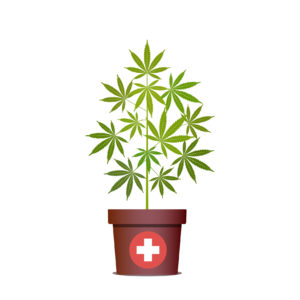By: Brent E. Johnson

The 2018 Farm Bill was supposed to finally (and favorably) resolve the question of whether hemp can be commercially grown in the United States (and thus whether hemp products derived from U.S. cultivated hemp can be legally sold). The Farm Bill did not pass by the September 30, 2018 deadline (thanks it seems to political maneuvering relating to the food stamp program). The Bill is expected to go to a vote again this month.
If passed, what does the Farm Bill mean for hemp?
- The Hemp Farming Act (S. 2667) (included in the Senate version of the Farm Bill) makes the big change hemp farmers and CBD activists have been hoping for – defining “hemp” as different from “marijuana” (a Schedule I controlled substance) and therefore rendering it an ordinary agricultural commodity. (Note that this is a semantic change – there is no taxonomical difference between “hemp” and “marijuana” – they are different strains of the Cannabis Sativa plant).
- The definition (under Sec. 297A (1)) provides that “hemp” is cannabis that contains no more than 0.3% of the psychoactive compound delta-9 tetrahydrocannabinol (THC) by dry weight.
- The Act would place federal regulatory authority of hemp solely with USDA but allow States to regulate hemp cultivation.
- The Act would also remove restrictions on banking, water rights, and other regulatory roadblocks the U.S. hemp industry currently faces and explicitly authorizes crop insurance for hemp.
Problems remain, however. For instance, there are no national standards for how to test hemp for the 0.3% THC threshold that distinguishes it from the illegal form of the crop.
What does this mean for CBD products?
For the uninitiated, cannabidiol (CBD) is an extract from the cannabis plant – one that contains only negligible amounts of THC – and thus does not cause a “high.” It is otherwise pharmacologically active, however, and has been studied as a treatment for diseases such as MS and epilepsy. CBD is also thought to have general beneficial uses for pain relief and as an anti-inflammatory (see recent study from McGill University). And of course, it is regarded as a killer hangover remedy — second only to bacon. On that basis, it has gained popularity in the last few years as an additive to foods, beverages and dietary supplements. Last year, CBD consumer sales in the US were over $350 million. Some projections indicate that by 2020 that figure will surpass $1 billion. You can buy CBD chocolates on Gwyneth Paltrow’s Goop website and all manner of CBD coffee, shampoo, and candies. Mainstream companies such as Coca Cola are said to be investigating CBD infused products.
Because CBD can be extracted from low THC “hemp” cannabis plants – the CBD-product industry will be one of the major beneficiaries of hemp farming reform.
At present, though, and contrary to popular belief, CBD is not treated any differently by the Feds from it’s THC cousin – it remains a Schedule I drug according to the Drug Enforcement Agency (see 81 FR 90195). It cannot, therefore, be legally sold under federal statute. There are a couple of exceptions. First, in the Ninth Circuit. In 2004, the Left Coast Court held that DEA “cannot regulate naturally-occurring THC not contained within or derived from marijuana- i.e., non-psychoactive hemp products – because non-psychoactive hemp is not included in Schedule I.” Hemp Indus. Assoc. USA LLC, et al. v. DEA, 357 F.3d 1012 (9th Cir. 2004). DEA did not seek a writ of certiorari to the Supreme Court. And second, Section 7606 of the 2014 Farm Bill authorized state pilot programs for growing industrial hemp, which included the right to “market” the products created from those programs. In 2016, Congress defunded any effort by DEA to crack down on hemp products developed through state pilot programs in The Consolidated Appropriations Act: “None of the funds made available by this Act or any other Act may be used . . . to prohibit the transportation, processing, sale, or use of industrial hemp that is grown or cultivated in accordance with subsection section 7606 of the Agricultural Act of 2014, within or outside the State in which the industrial hemp is grown or cultivated.”
There is also a window for CBD in so far that there is a recently Schedule V approved epilepsy drug (Epidiolex) which contains CBD – and thus (at least in the form of this specific drug) it can be legally prescribed.
While CBD is (with exception) still illegal under federal law, as with marijuana, many states have purported to “legalize” it. More than a dozen states have passed laws to allow the use of non-THC CBD products for the treatment of certain medical conditions. In addition, thirty states have passed comprehensive medical cannabis laws, which allow for the use of cannabis products with no restrictions on THC content and in eight states the recreational use and sale of cannabis products is “legal.”
So irrespective of the nuances of state and federal law, CBD appears to be comfortably under the radar. But under this hodge-podge of federal exceptions (and forbearance) and the uncertain effect of state laws, most mainstream companies are understandably waiting for the broader protections of the Hemp Farming Act under the 2018 Farm Bill before bringing CBD products to market. At this stage, they will have to wait a little longer.
